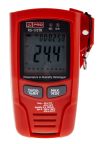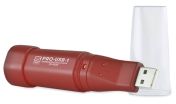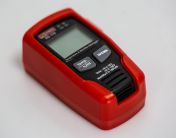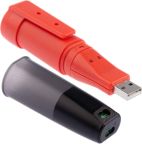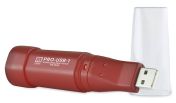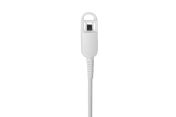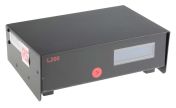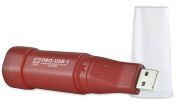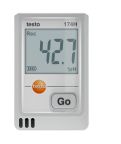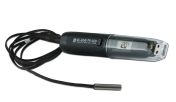Data Loggers
A data logger is a compact, battery-powered device equipped with an internal microprocessor, data storage, and one or more sensors. They can be deployed in a variety of environments to record measurements at set intervals. The devices automatically monitor and record environmental parameters over time, allowing conditions to be measured, documented, analysed and validated. The data logger contains a sensor to receive the information and a computer chip to store it then this information is transferred to a computer for analysis. You can discover more in our data loggers guide.
We have a great range of Data Loggers at RS from brands such as Lascar, Testo, Extech, Fluke and RS PRO which means you get access to top-quality products, fast delivery, and exceptional customer support. With a wide selection of trusted brands, you can easily find the perfect solution for your monitoring needs. RS also has technical advisers on hand to provide you information not only on the product, but also on our calibrated services.
What data and measurements can a data logger collect?
Depending on the particular data logger, measurements and parameters can include:
- temperature
- humidity
- power
- differential pressure
- time-of-use (lights, motors, etc.)
- light intensity
- water temperature, water level
- dissolved oxygen
- soil moisture
- rainfall
- wind speed and direction
- leaf wetness
- pulse signals
- plug load and many more.
Why use data loggers?
- The devices are usually compact and portable for use in the field and in the laboratory.
- Data can be measured automatically using computer control, meaning there is no need for a physical presence, saving on a valuable resource.
- Some data loggers have a handy USB plugin interface or a wireless Bluetooth feature that enables the transfer of data to be even easier and more convenient.
- The data loggers can be accessed remotely, and readings can be stored to bring back to the laboratory or office after the data has been collected in the field.
- Some data loggers have an IP rating to withstand environmental elements while collecting data.
- Data can be collected 365 days a year, 24 hours a day.
Applications of data loggers include:
- Environmental Monitoring - to track temperature, humidity, air quality, and light levels in environmental studies, HVAC systems, agriculture, and research projects
- Industrial Processes - help with monitoring and optimising e.g. pressure, flow rate, voltage, and current
- Energy Management – help track electricity consumption, solar panel performance, and environmental conditions
- Research and Development - they assist in areas such as biology, chemistry, physics, and engineering, supporting evidence-based discoveries and innovations
Popular Searches
Related links
- RS PRO PRO-USB-2 Temperature & Humidity Data Logger 1 Input Channel(s)
- Lascar EL-USB-2 Temperature & Humidity Data Logger 1 Input Channel(s)
- RS PRO RS-172TK Temperature & Humidity Data Logger 1 Input Channel(s)
- Lascar EL-SP2-TH Temperature & Humidity Data Logger, USB
- Lascar EL-SP2-TH+ Temperature & Humidity Data Logger, USB
- RS PRO PRO-MOTE-TH Temperature & Humidity Data Logger 1 Input Channel(s)
- Lascar EL-WiFi-TH Temperature & Humidity Data Logger 1 Input Channel(s)
- Extech SD500 Temperature & Humidity Data Logger USB

